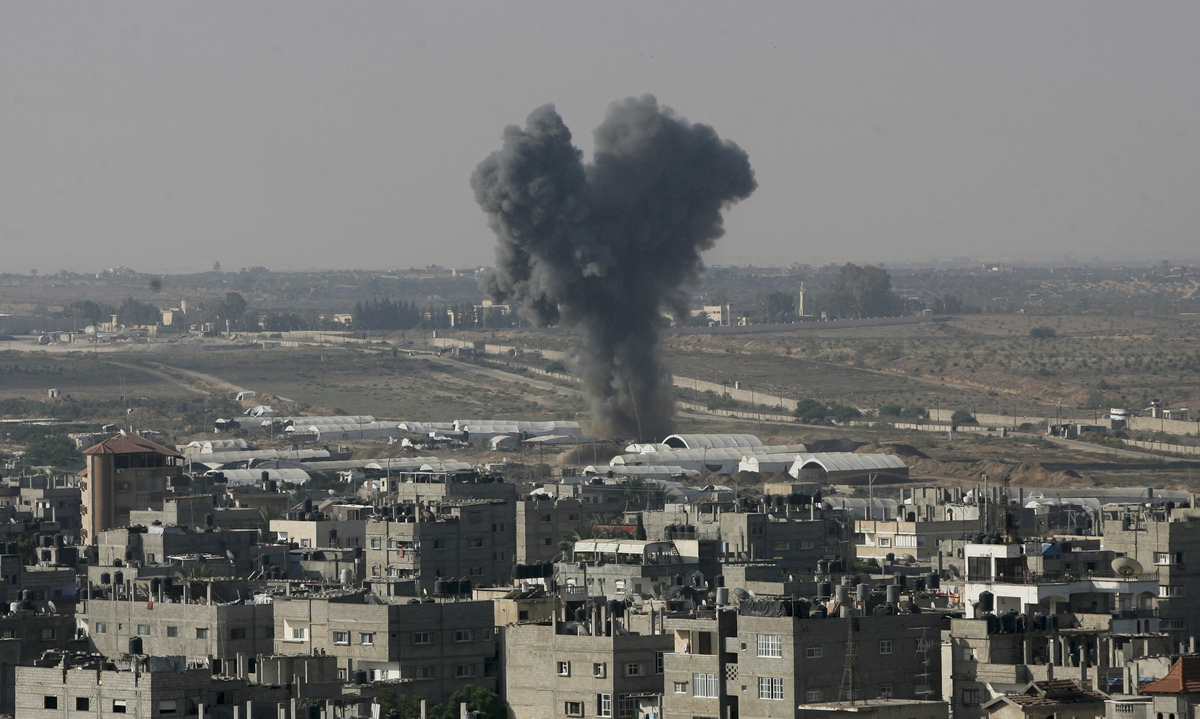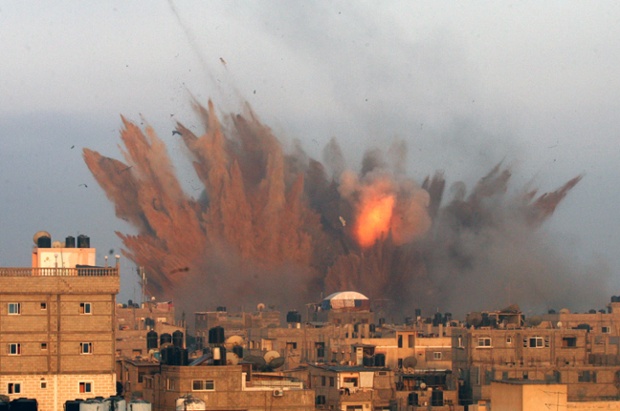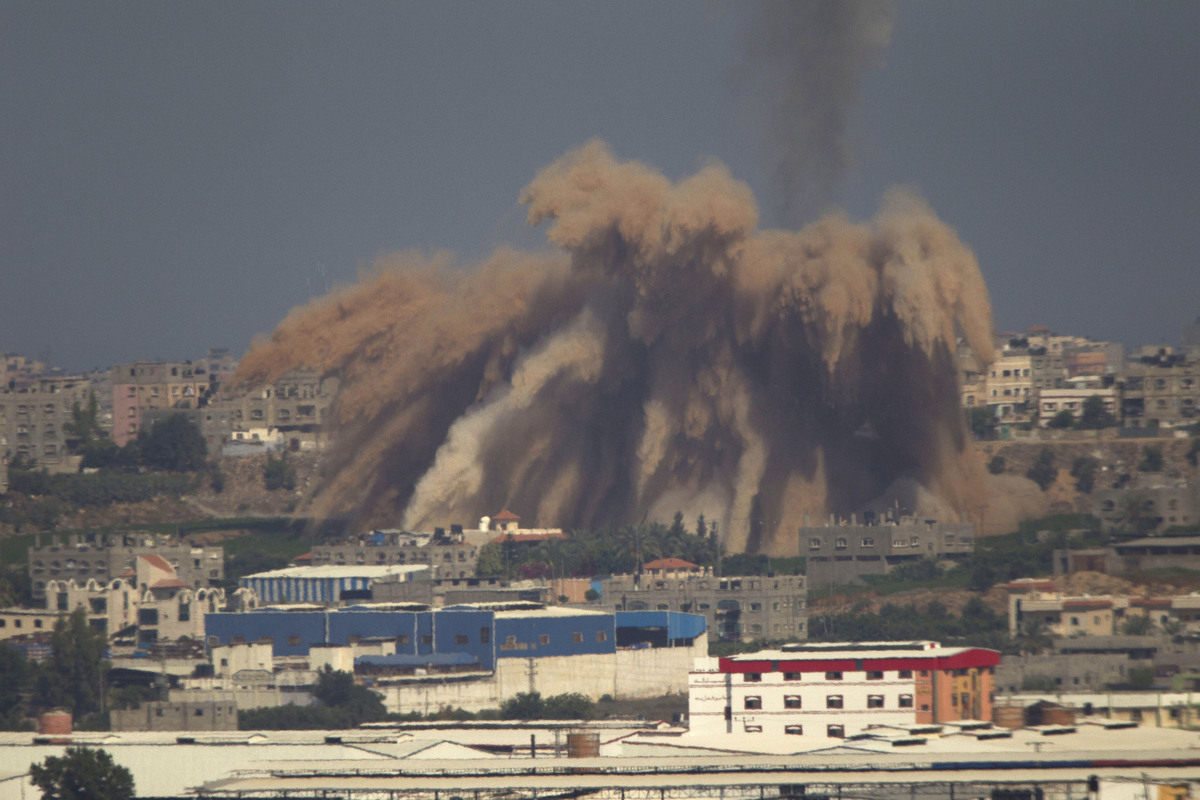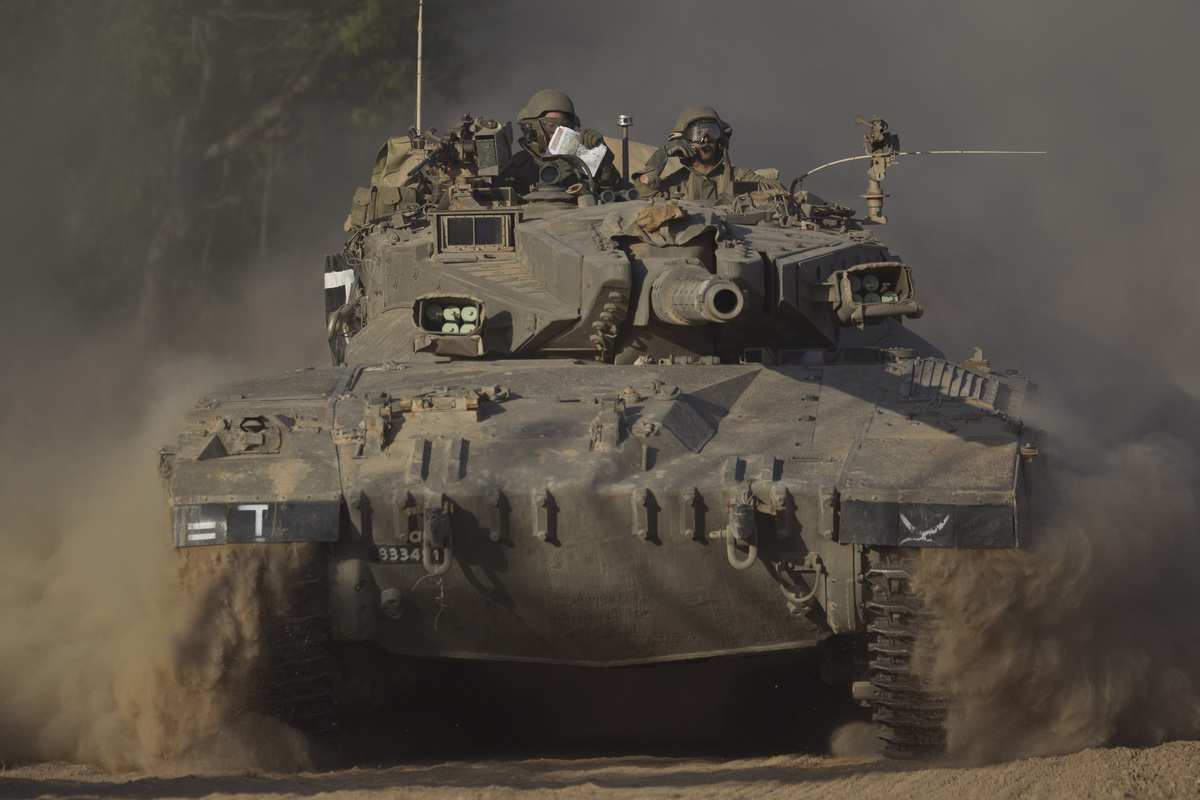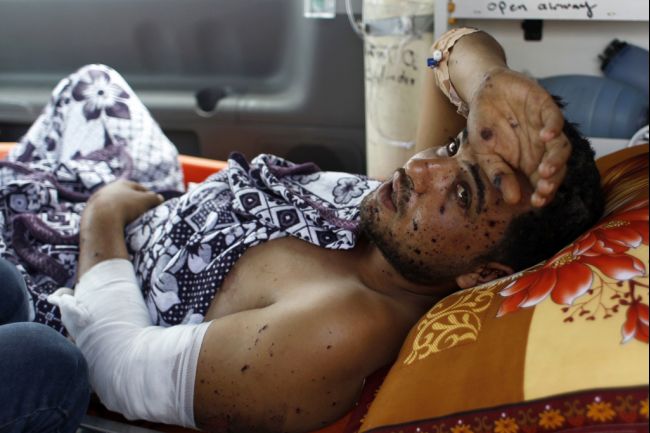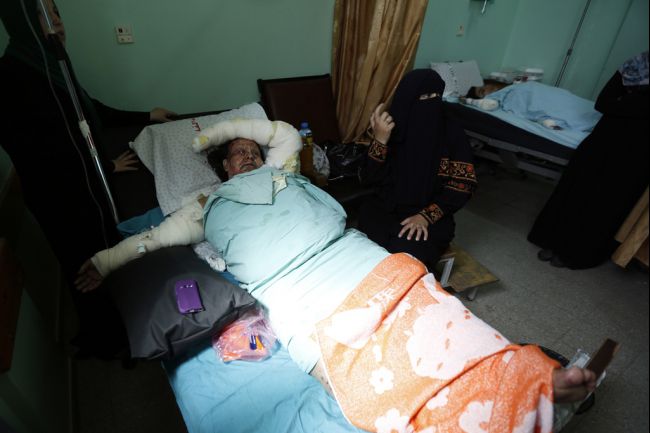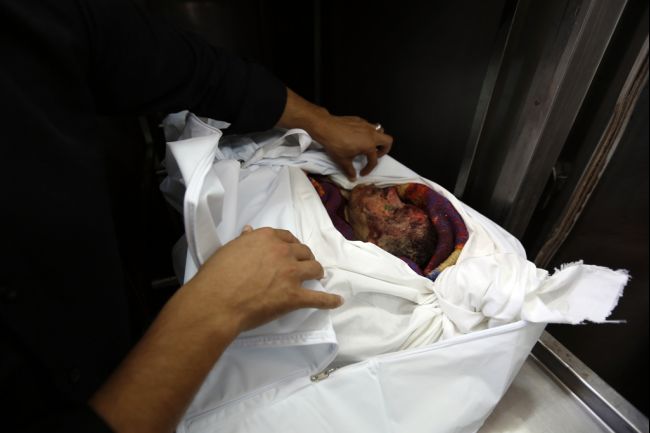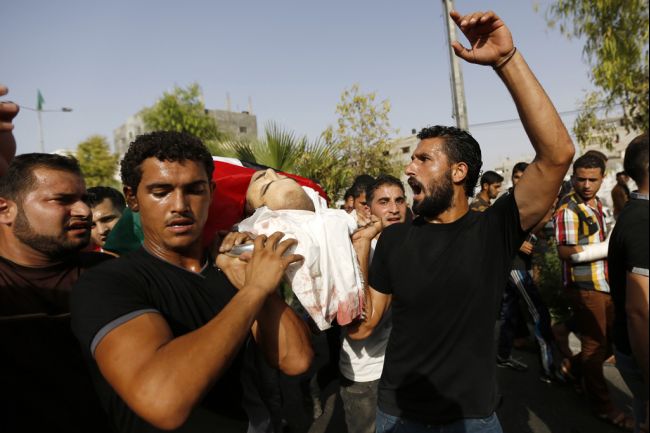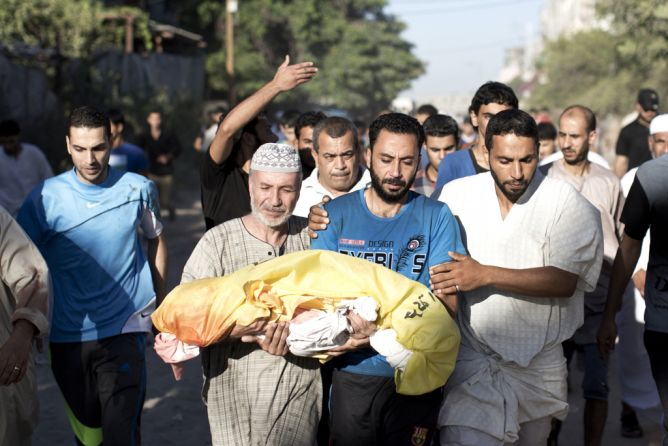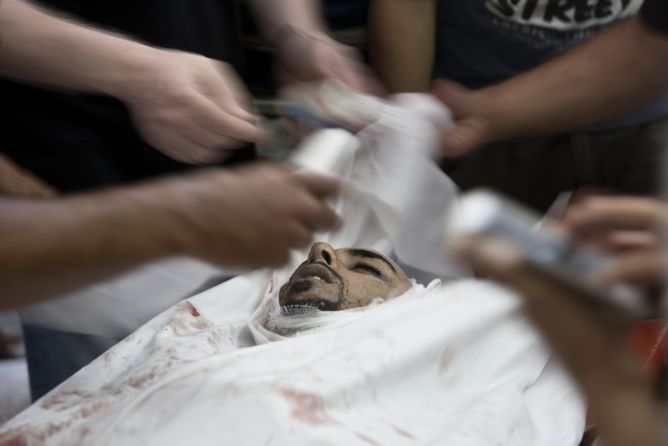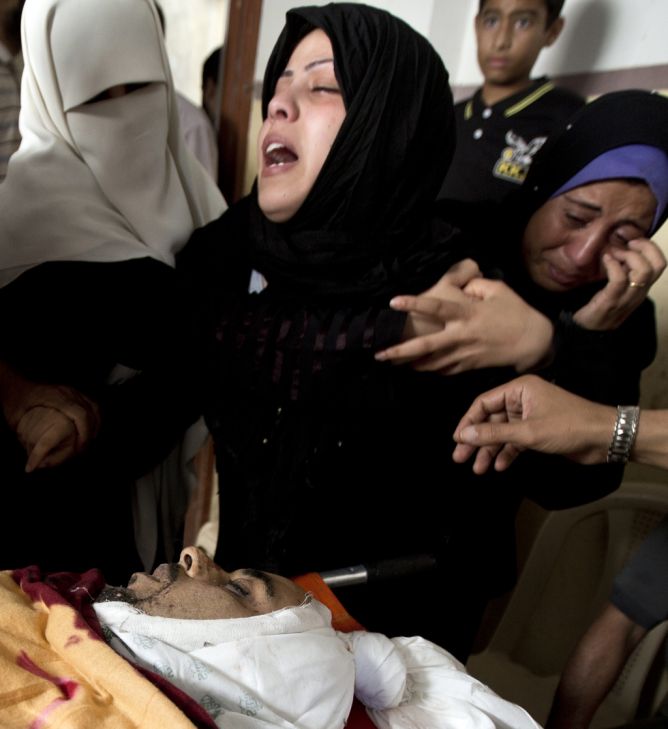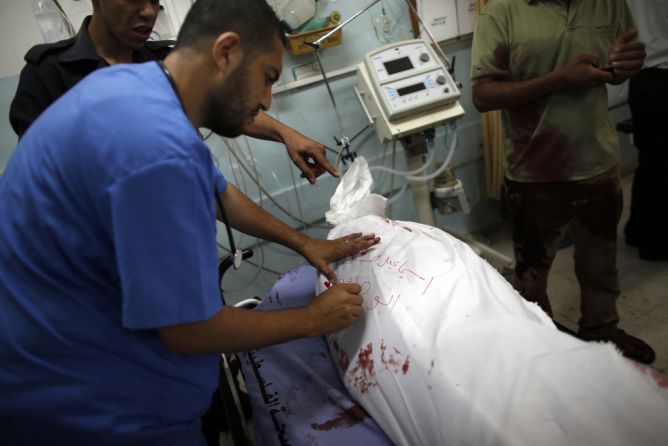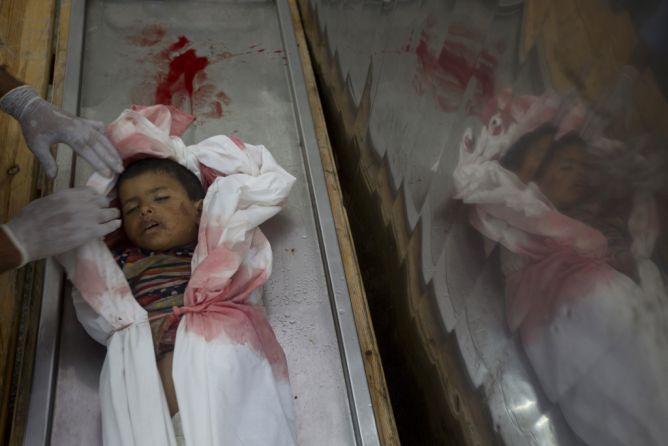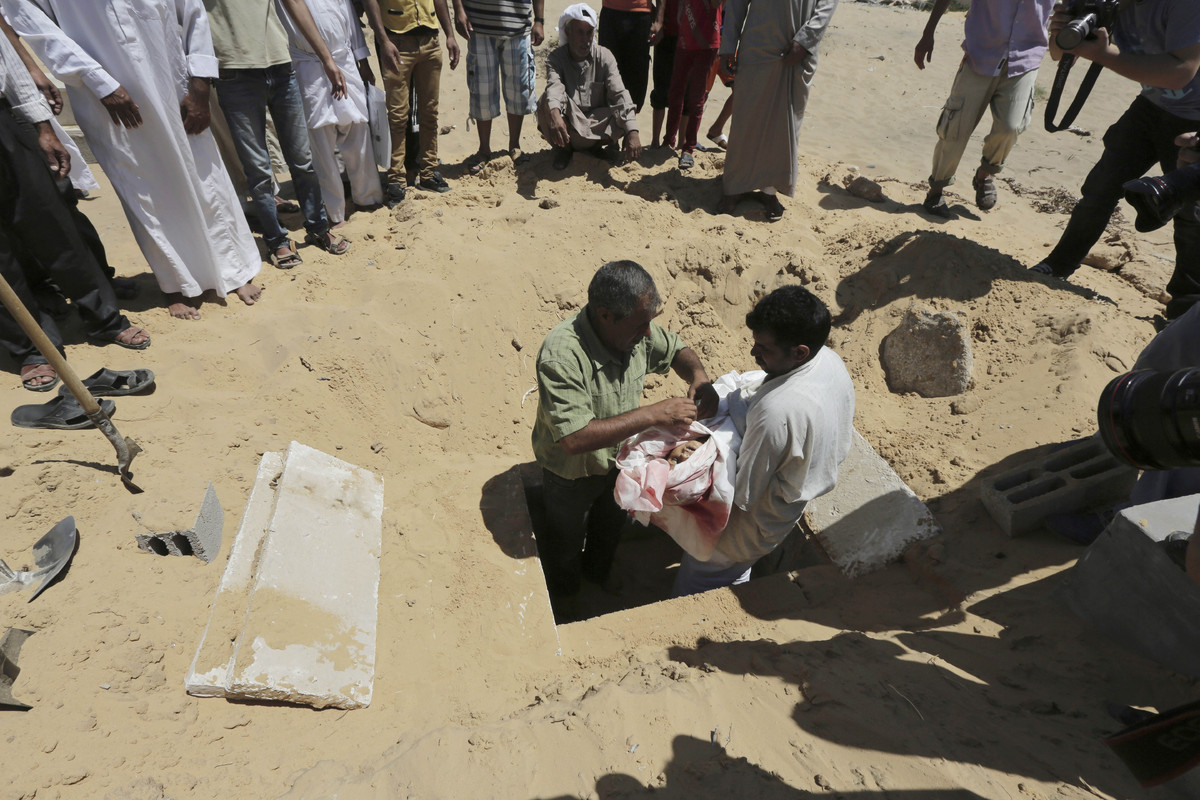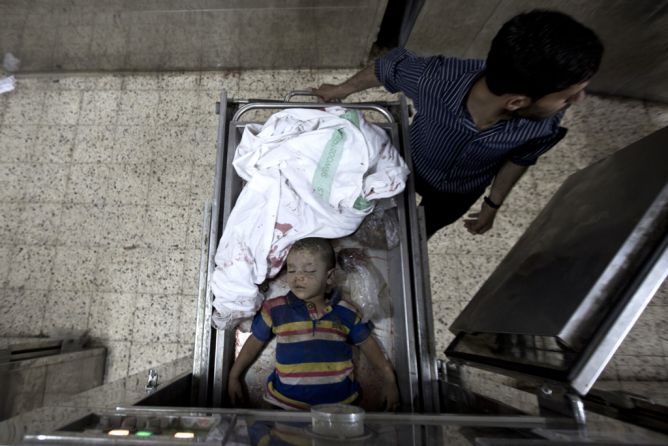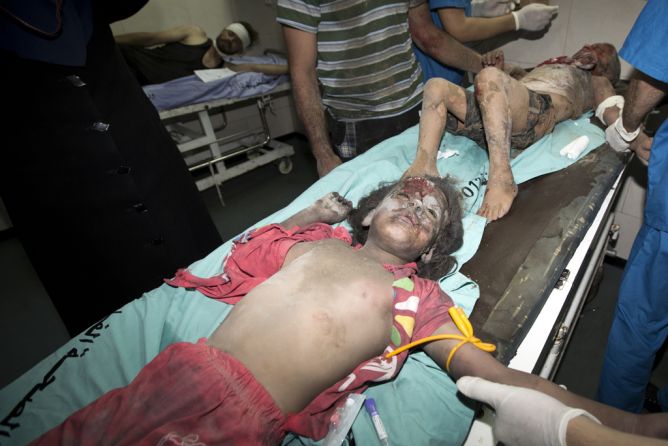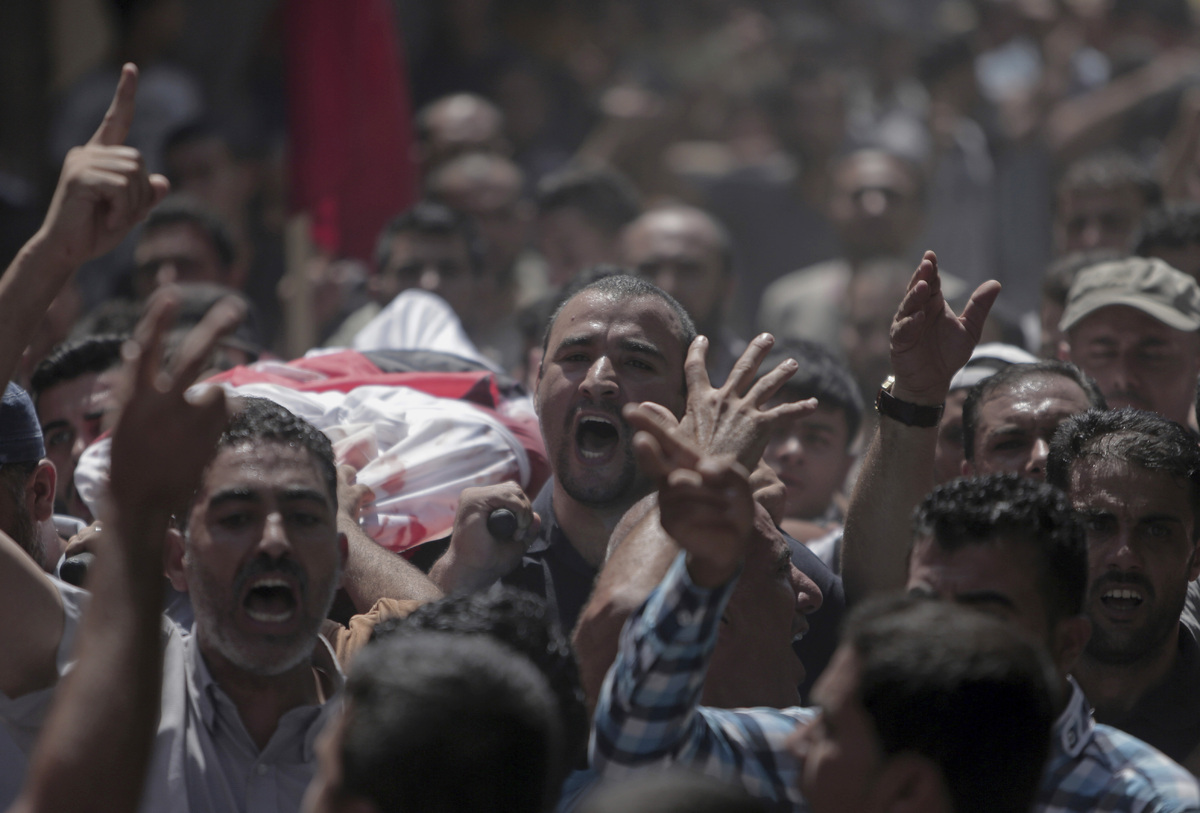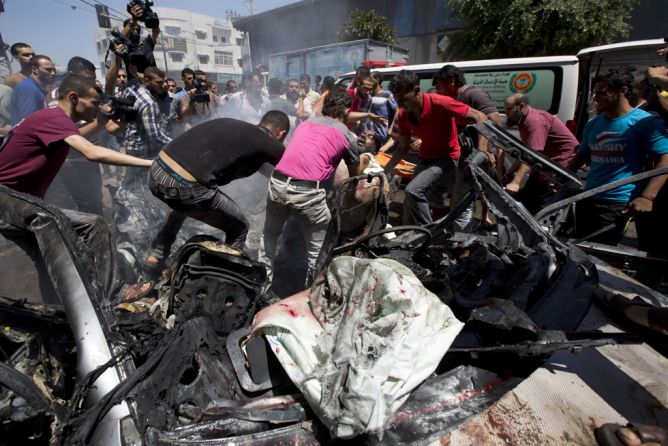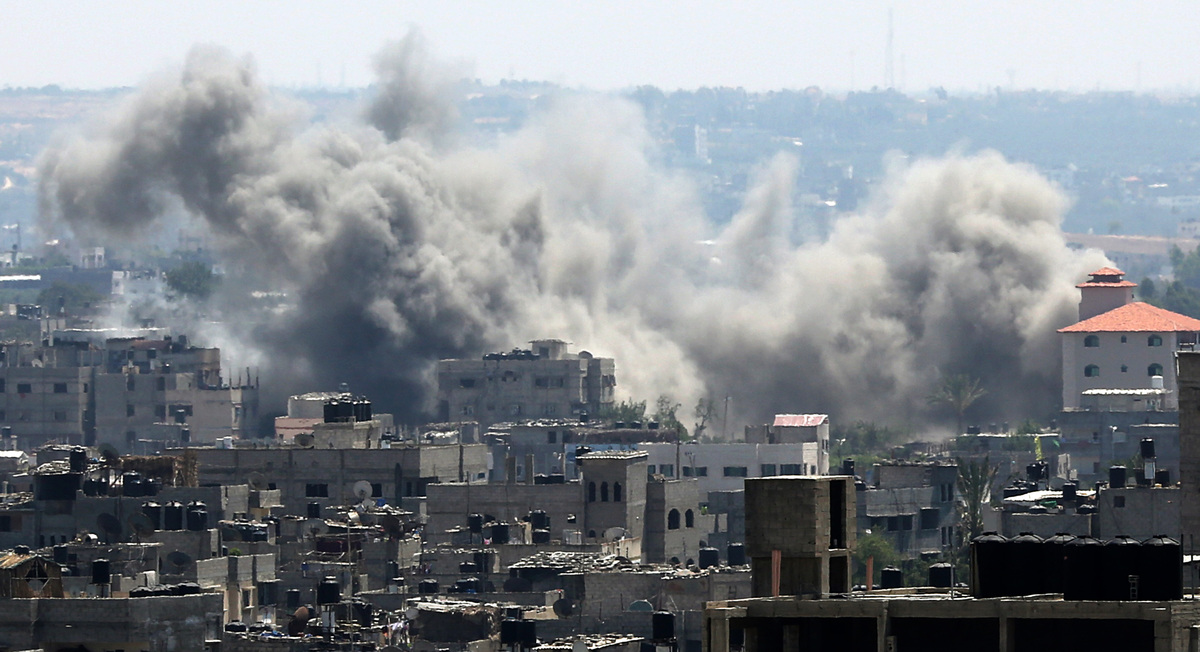[MUST SEE] 20 Bloodied Images That Don't Hide How The People Of Gaza Lay In Utter Ruins
These images from Gaza that are too graphic for many news outlets to publish show the true horrors faced by Gazans in the hands of Israel.
It's been a week since Israel's continuous attacks on Gaza. As a result of the air strikes, over 150 Palestinians have been killed so far with more than 1,000 wounded.
An Israeli missile hits smuggling tunnels between Egypt and the Gaza Strip, in Rafah, southern Gaza Strip, Wednesday, July 9, 2014
Image via huffpost.comBut those numbers don't really convey the true horrors of what's happening right now in Gaza. Neither do most of the photographs you will find in news media.
A ball of fire is seen following an Israeli air strike in Rafah, in the southern Gaza Strip
Image via guim.co.ukBuildings have been blasted to rubble, yes. People are broken and mourning. Those things must be documented. But too often, we hide from the most graphic scenes of violence and death.
An Israeli missile hits an area in Rafah, southern Gaza Strip, Wednesday, July 9, 2014.
Image via huffpost.comWe at SAYS will do no such thing. We will not hide, we will not be shy. SAYS will do that documenting, and we will update our readers as new images continue to appear. This is the cost of war.
Israeli soldiers drive a tank to a position near Israel Gaza Border, Thursday, July 10, 2014
Image via huffpost.comOn Saturday, in the bloodiest single attack yet, an Israeli airstrike hit the home of Gaza police chief Tayseer Al-Batsh, killing 15, most of whom were members of Batsh's family. This video contains horrific footage of the attack's aftermath:
12 July 2014, this Palestinian man, wounded in an Israeli air strike, lay on a stretcher in an ambulance before being given the permission to cross into Egypt at the Rafah crossing between Egypt and the southern Gaza Strip
12 July 2014, Palestinian women check on Salwa Abu Al-Qumsan working with the Palestinian center for people with special needs as she lies in a hospital bed in Gaza City, after the center housing her was targeted by an Israeli air strike
12 July 2014, the body of Suha Abu Saada lies in a morgue in Gaza city, after the Palestinian center for people with special needs housing her in northern Gaza Strip was targeted by an Israeli air strike
12 July 2014, relatives and friends of a Palestinian, who was killed in an Israeli air raid, carry his body during his funeral in Gaza City
11 July 2014, Palestinian mourners carry the body of four-year-old boy Sahir Abu Namus, during his funeral after he was killed following an Israeli air strike
11 July 2014, Palestinians prepare the body of a 33-year-old Palestinian doctor Anas Abu al-Kas in the morgue of the al-Shifa hospital in Gaza City
11 July 2014, the wife of the doctor mourns over his body during his funeral in family home
10 July 2014, a Palestinian doctor writes a name on the shroud wrapping the body of a man who died from his wounds following an Israeli air strike in the southern Gaza Strip city of Khan Yunis
10 July 2014, the body of five-year-old Palestinian boy Abdallah Abu Ghazal lies at a morgue in the northern Gaza town of Beit Lahiya after he was killed in an Israeli air strike
10 July 2014, relatives bury five-year-old Abdallah Abu Ghazal during his funeral in the northern Gaza Strip
A Palestinian man holds the drawer of a morgue fridge, where two-year-old Mohammed Malaka is being kept before burial, at the al-Shifa hospital in Gaza City
9 July 2014, a Palestinian man carries his wounded daughter into the al-Shifa hospital in Gaza City following an Israeli air strike
9 July 2014, Wounded children are brought into the the al-Shifa hospital in Gaza City following an Israeli air strike
9 July 2014, Palestinian mourners carry bodies of the five members of the Hamad family who were killed in an Israeli missile strike in town of Beit Hanoun
8 July 2014, Palestinians remove the body of a man from a vehicle targeted in an Israeli airstrike on Gaza City
While Palestinians have been killed by the shelling, so far, no Israelis have died in the conflict. But one man was seriously injured when a rocket hit a gas station in Ashdod, south of Tel Aviv.
Smoke rises after an airstrike by Israeli forces in the south of Gaza City, 09 July 2014
Image via huffpost.comThe dramatic escalation of violence follows weeks of tension after the kidnapping and murder of three Israeli teenagers and the revenge killing of a Palestinian teenager, reportedly carried out by a gang of Jewish right-wing extremists.
The images on television are dramatic. As The New York Times reported, Shlomo Brom, a retired Israeli general at the Institute for National Security Studies in Tel Aviv, compared the situation to a “Greek tragedy in which both Israel and Hamas are running toward something that neither wants.”
